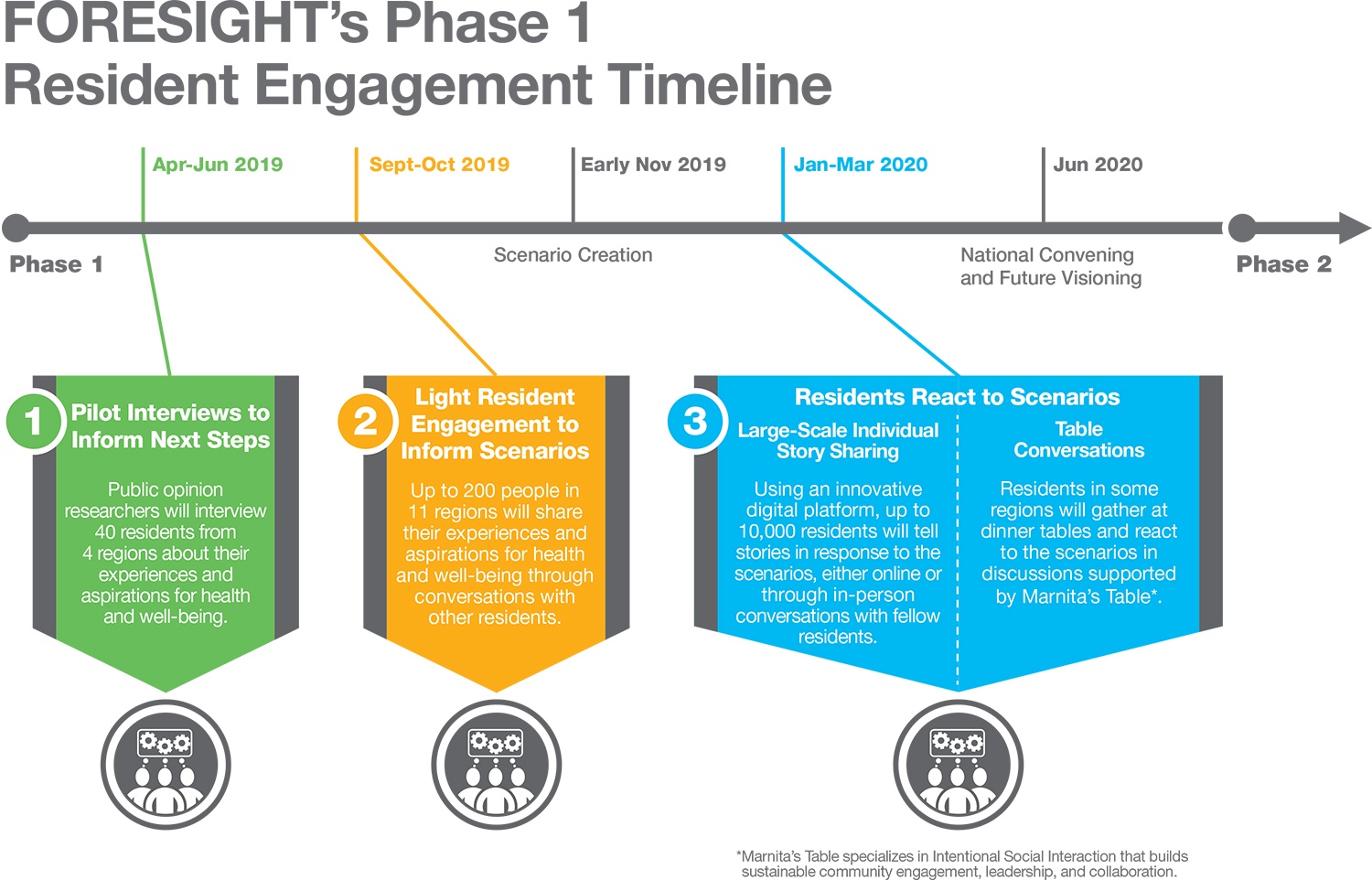FORESIGHT is trusting emergence, and that means an integral part of our process is adapting that process as we go. Thanks to feedback from our Advisory Committee and Philanthropic Partners, as well as what we learned from initial interviews in multiple regions with residents most impacted by health inequities, we’re doing just that with our resident engagement plans.
That said, our core premise for placing resident voices at the center of this work remains the same: in order to create a future in which the health and well-being of all people in the United States is valued and well-supported, it’s necessary to understand the concerns, challenges, hopes, and aspirations of residents.
Our initial plan was broken up into two steps: exploratory interviews and then a large-scale resident engagement effort, all to be completed before we formed our three to five alternative futures scenarios (stories about different possible futures meant to stretch imaginations). As we developed Phase 1, it became apparent that while resident input into the scenarios would be important, it would be valuable to learn how residents reacted to the scenarios—especially after the initial interviews indicated that residents rarely imagined the future when faced with pervasive inequities today, and that a new vantage point, built from trends, early resident engagement, and scenarios, might help.
Given that, we’ve updated our resident engagement plans to shift the main focus of our large-scale resident engagement to scenario reactions:
